Berberine price comparison cheapest options
Finding affordable berberine supplements can save you hundreds of dollars annually while supporting your health goals. This guide is for budget-conscious consumers, fitness enthusiasts, and anyone seeking berberine price comparison to find the cheapest options without compromising quality.
Berberine prices vary dramatically across brands, retailers, and supplement types. Generic brands often cost 60-70% less than premium options, yet deliver similar benefits when properly manufactured.
We’ll explore budget-friendly brands under $20 that offer excellent value and reveal where to find the lowest prices online and in stores. You’ll also learn cost-per-dose analysis techniques to identify true bargains and discover red flags that signal suspiciously cheap supplements you should avoid.
Understanding Berberine Supplement Types and Their Cost Variations
Plant-based Berberine Extract Differences
Berberine comes from several different plants, and the source affects both quality and price. The most common sources include goldenseal, Oregon grape, barberry, and tree turmeric. Goldenseal-derived berberine typically costs more because the plant is slower-growing and harder to cultivate sustainably. You’ll often see prices 20-30% higher for goldenseal berberine compared to other sources.
Barberry-sourced berberine offers the best value for most people. The plant grows quickly and produces consistent alkaloid levels, making it the go-to choice for budget-conscious manufacturers. Tree turmeric berberine falls somewhere in the middle price-wise but provides excellent bioavailability.
The extraction method also impacts cost. CO2 extraction produces the purest berberine but costs more to manufacture. Ethanol extraction is cheaper but may leave trace solvents. Water extraction is the most affordable option but typically yields lower concentrations.
Standardized vs Non-standardized Formulations
Standardized berberine supplements guarantee a specific percentage of active compounds, usually 97% or higher berberine content. These cost more because manufacturers must test each batch and adjust formulations to meet consistency standards. You’re paying for reliability and predictable results.
Non-standardized products contain varying amounts of berberine, sometimes as low as 85%. While cheaper upfront, you might need larger doses to get the same effects. The cost per effective dose often ends up similar to standardized versions.
Third-party testing adds another layer of expense to standardized products but ensures what’s on the label matches what’s in the bottle. Budget brands may skip this step to keep prices low.
Capsule vs Tablet vs Powder Pricing Factors
Berberine powder offers the lowest cost per gram but requires measuring and mixing. Expect to pay 40-60% less than encapsulated versions. The downside is berberine’s bitter taste and the inconvenience of measuring doses.
Capsules cost more due to manufacturing complexity and materials. Vegetarian capsules typically add $2-5 to the bottle price compared to gelatin versions. The encapsulation process requires specialized equipment and quality control measures.
Tablets fall between capsules and powder in pricing. They’re easier to manufacture in large quantities but may contain more fillers and binding agents. Some people find tablets harder to digest, which could affect absorption rates.
Organic Certification Impact on Costs
Organic berberine supplements command premium prices, often 25-40% higher than conventional versions. The certification process requires extensive documentation, regular inspections, and adherence to strict growing and processing standards.
Organic certification doesn’t necessarily mean higher berberine content or better effectiveness. The main benefit is avoiding synthetic pesticides and fertilizers during cultivation. For cost-conscious buyers, conventional berberine from reputable manufacturers offers similar therapeutic benefits at lower prices.
Some brands use “organic” marketing without proper certification. Look for official USDA Organic seals rather than vague “natural” or “organic-like” claims that don’t carry legal weight.
Top Budget-Friendly Berberine Brands Under $20
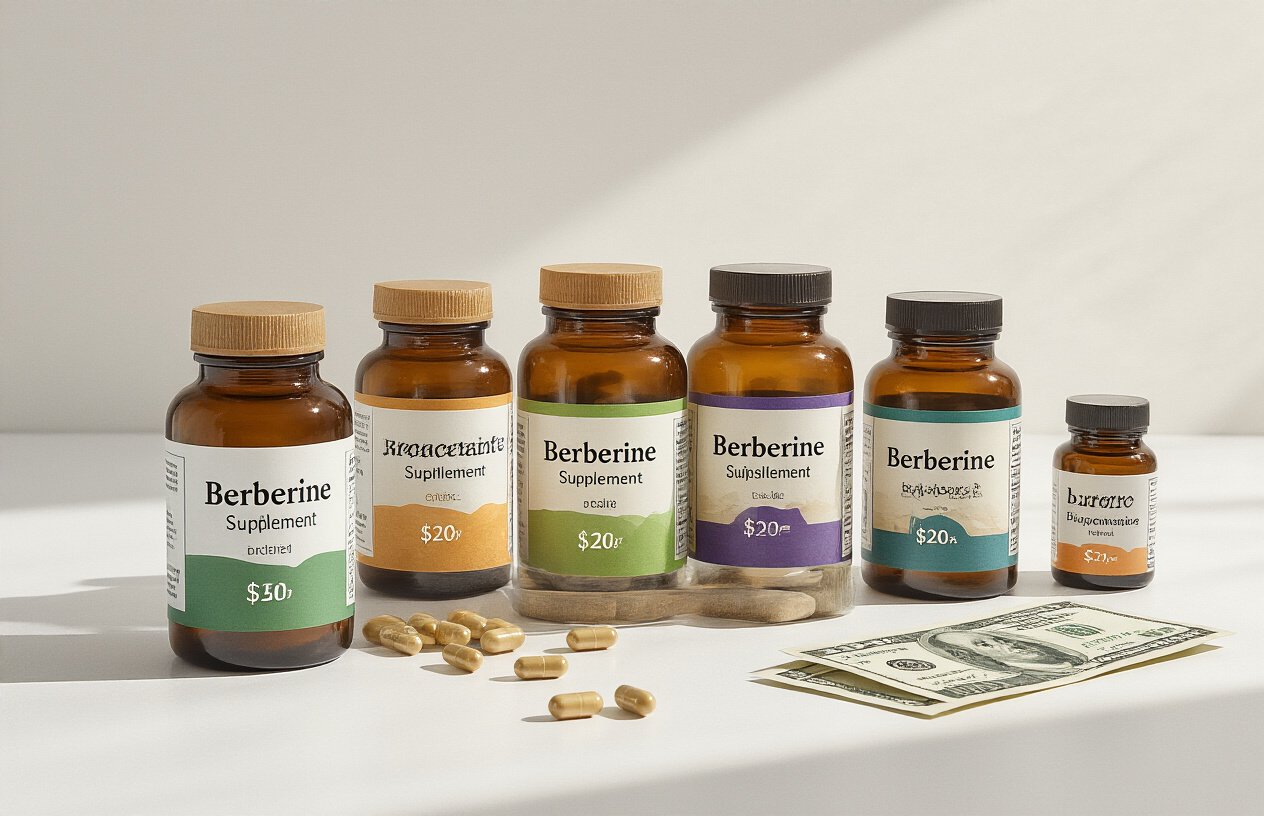
Generic store brands offering quality at low prices
Major retailers like CVS, Walgreens, and Walmart have developed their own berberine supplements that compete directly with name brands at significantly lower prices. CVS Health Berberine typically retails for $12-15 per bottle, containing 90 capsules of 500mg each. Walgreens’ Simply Right brand offers similar value at around $13-16, while Walmart’s Spring Valley berberine often comes in under $10 for a 60-capsule bottle.
These generic versions undergo the same FDA manufacturing standards as premium brands but skip the marketing costs and brand positioning expenses. Many are produced in the same facilities as name-brand supplements, using identical raw materials and quality control processes. The primary difference lies in packaging design and advertising budgets rather than actual product quality.
Bulk supplement manufacturers with direct pricing
Companies like BulkSupplements, PureBulk, and Hard Rhino eliminate middleman markups by selling directly to consumers. BulkSupplements offers pure berberine HCl powder starting at $18 for 100 grams, which provides approximately 200 servings at 500mg each. This translates to roughly 9 cents per dose compared to 20-30 cents for capsulated versions.
PureBulk follows a similar model, offering 100-gram containers for $16-19, while Hard Rhino provides both powder and capsule options at wholesale pricing. These manufacturers focus on raw ingredient quality rather than fancy packaging, passing savings directly to customers. However, powder forms require accurate measuring scales and may not appeal to users who prefer pre-measured capsules.
Online-only brands reducing overhead costs
Digital-first supplement companies like Thorne, Pure Encapsulations outlet stores, and Nootropics Depot leverage online sales to offer competitive pricing. Nootropics Depot’s berberine capsules retail for $14-17 per bottle, while their powder form costs even less. These companies save money by avoiding physical retail locations, reducing staff overhead, and maintaining lean inventory systems.
Doctor’s Best, when purchased through online retailers like iHerb or Vitacost, frequently appears in the $15-18 range for 90-capsule bottles. NOW Foods berberine can be found for $12-16 through online channels, often with additional discounts for bulk purchases or subscription services.
Value per milligram comparison of affordable options
| Brand | Price | Capsules | mg per capsule | Cost per mg |
|---|---|---|---|---|
| Walmart Spring Valley | $9.98 | 60 | 500mg | $0.0003 |
| BulkSupplements Powder | $18.00 | 200 servings | 500mg | $0.0002 |
| CVS Health | $14.99 | 90 | 500mg | $0.0003 |
| NOW Foods (online) | $15.49 | 90 | 500mg | $0.0003 |
| Nootropics Depot | $16.99 | 120 | 500mg | $0.0003 |
When calculating true value, consider the bioavailability and third-party testing credentials of each option. Some budget brands include additional ingredients like black pepper extract (piperine) to enhance absorption without significantly increasing costs, making them more cost-effective per effective dose.
Where to Find the Lowest Berberine Prices
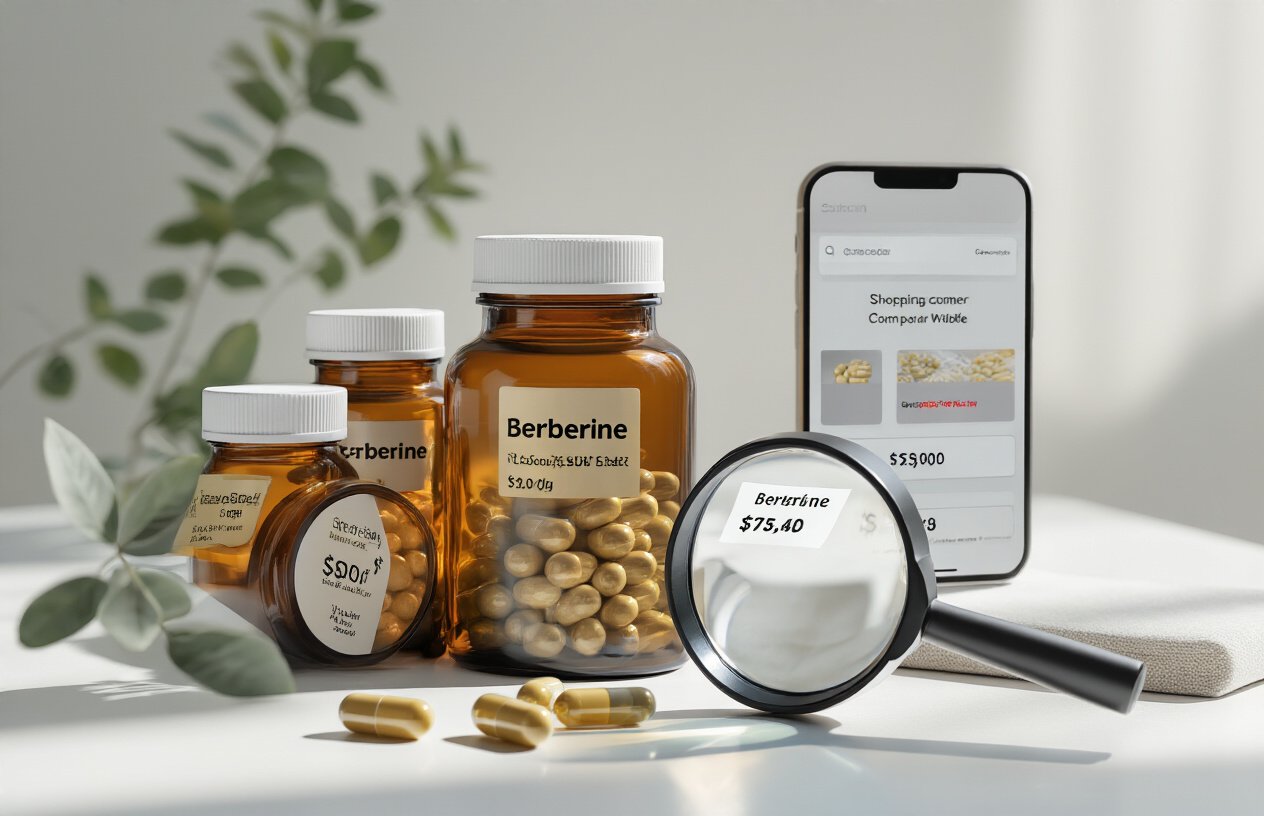
Online retailers with competitive pricing advantages
Amazon dominates the berberine market with its vast selection and frequent price drops. Prime members get additional discounts on many supplements, plus free shipping that saves even more money. The platform’s Subscribe & Save program offers up to 15% off regular orders, making it perfect for long-term users.
iHerb consistently beats retail prices by 20-30% and runs weekly flash sales on different supplement brands. Their rewards program gives you credit back on purchases, and shipping costs stay low even for international orders. Vitacost and Swanson Health Products also maintain competitive pricing with regular clearance sections worth checking.
Walmart’s online store often undercuts specialty retailers, especially on generic berberine brands. Their grocery pickup service lets you avoid shipping fees entirely. Target’s website frequently runs buy-one-get-one deals on supplements, though their berberine selection stays more limited.
Warehouse clubs and bulk buying opportunities
Costco members can find excellent berberine deals, particularly on the Kirkland Signature brand that offers pharmaceutical-grade quality at fraction of name-brand costs. A single bottle typically contains 180-240 capsules, bringing the per-dose price down significantly.
Sam’s Club carries similar bulk options with Member’s Mark supplements. Their berberine products come in larger quantities that work well for households with multiple users or those planning long-term supplementation.
BJ’s Wholesale Club provides middle-ground options between regular retail and mega-bulk purchases. They often run additional member discounts on already-reduced supplement prices.
Local warehouse stores sometimes carry regional supplement brands at deeply discounted prices. These products meet the same FDA manufacturing standards as national brands but cost considerably less due to lower marketing expenses.
Manufacturer direct sales and subscription discounts
Buying straight from supplement manufacturers cuts out middleman markups entirely. Companies like NOW Foods, Nature’s Way, and Thorne offer direct-to-consumer sales with exclusive discounts not available elsewhere.
Subscription services from manufacturers typically provide 10-25% savings on regular orders. You can usually adjust delivery frequency and pause shipments when needed. Doctor’s Best, Life Extension, and Jarrow Formulas all run subscriber programs with additional perks like free shipping and early access to new products.
Many manufacturers email coupon codes to newsletter subscribers. These codes stack with existing promotions for maximum savings. Following supplement companies on social media also reveals flash sales and limited-time offers.
Some brands offer loyalty points systems where purchases accumulate credits toward future orders. While savings start small, regular users can eventually earn significant discounts.
International suppliers with cost savings potential
Indian pharmaceutical companies produce high-quality berberine at extremely low costs due to favorable manufacturing conditions and currency exchange rates. Reputable suppliers like Himalaya Wellness and Organic India ship worldwide with proper documentation.
European suppliers, particularly from countries like Germany and Switzerland, offer premium berberine extracts at competitive prices. Their products often undergo more rigorous testing than required in other markets.
Canadian online pharmacies frequently sell berberine supplements at lower prices than US retailers, even after accounting for currency conversion and shipping costs. These suppliers follow strict Health Canada regulations for quality assurance.
However, international purchases require careful research. Verify the supplier’s reputation, check for proper certifications, and understand import regulations in your country. Shipping times typically range from 2-4 weeks, so plan accordingly for continuous supplementation needs.
Money-Saving Strategies for Regular Berberine Users
Bulk purchasing for long-term cost reduction
Buying berberine in larger quantities delivers significant savings per capsule. Most manufacturers offer 90-day or 180-day supplies at reduced per-unit costs compared to 30-day bottles. You’ll typically save 15-25% when purchasing three-month supplies and up to 35% with six-month orders.
Calculate your monthly usage before committing to bulk purchases. If you take 500mg twice daily, a 180-capsule bottle provides a three-month supply. Store unused bottles in cool, dry places away from direct sunlight to maintain potency throughout their shelf life, which usually extends 2-3 years from manufacture date.
Consider splitting bulk orders with friends or family members who also take berberine. This approach lets you access bulk pricing without overstocking while ensuring everyone gets fresh supplements.
Subscription services offering automatic discounts
Auto-delivery subscriptions provide consistent savings ranging from 10-20% off regular prices. Major retailers like Amazon, Vitacost, and iHerb offer subscription programs that ship berberine at predetermined intervals.
Set your delivery frequency based on actual consumption patterns rather than default options. Most people benefit from 60-90 day intervals, preventing stockpiling while maintaining steady savings. You can modify or cancel subscriptions anytime without penalties.
Some subscription services provide additional perks like free shipping thresholds, exclusive member pricing, and early access to sales. Track your subscription deliveries to avoid accumulating excess inventory, which reduces overall cost-effectiveness.
Seasonal sales and promotional timing
Black Friday and Cyber Monday consistently offer the deepest berberine discounts, with savings reaching 40-50% off regular prices. Health retailers also run significant promotions during New Year resolution season (January-February) and spring wellness campaigns (March-April).
Back-to-school periods (August-September) often feature supplement sales targeting students and health-conscious parents. Memorial Day and Labor Day weekends frequently include health supplement promotions as part of broader wellness campaigns.
Sign up for email newsletters from your preferred berberine brands and retailers to receive advance notice of sales. Many companies offer exclusive discount codes to subscribers before public announcements.
Generic alternatives to brand name products
Generic berberine supplements contain identical active ingredients as branded versions but cost 30-50% less. Look for products manufactured in FDA-registered facilities with third-party testing certifications to ensure quality matches branded alternatives.
Compare ingredient lists and potency levels between generic and brand name options. Many generic manufacturers use the same raw material suppliers as premium brands, delivering equivalent effectiveness at lower prices.
Private label berberine from major retailers like Costco’s Kirkland Signature or Amazon’s Solimo often provides excellent value. These products undergo rigorous quality testing while maintaining competitive pricing through bulk purchasing power.
Coupon codes and cashback opportunities
Browser extensions like Honey, Rakuten, and Capital One Shopping automatically apply available coupon codes at checkout, often uncovering discounts you might miss manually. These tools also compare prices across multiple retailers simultaneously.
Cashback credit cards specializing in health purchases can provide additional 2-5% returns on berberine orders. Some cards offer rotating quarterly categories that include health and wellness spending with higher cashback rates.
Retailer-specific programs like CVS ExtraCare, Walgreens Balance Rewards, and Amazon Prime provide member-exclusive pricing and cashback opportunities. Stack these programs with manufacturer coupons and credit card rewards for maximum savings potential.
Cost Per Dose Analysis of Popular Berberine Products
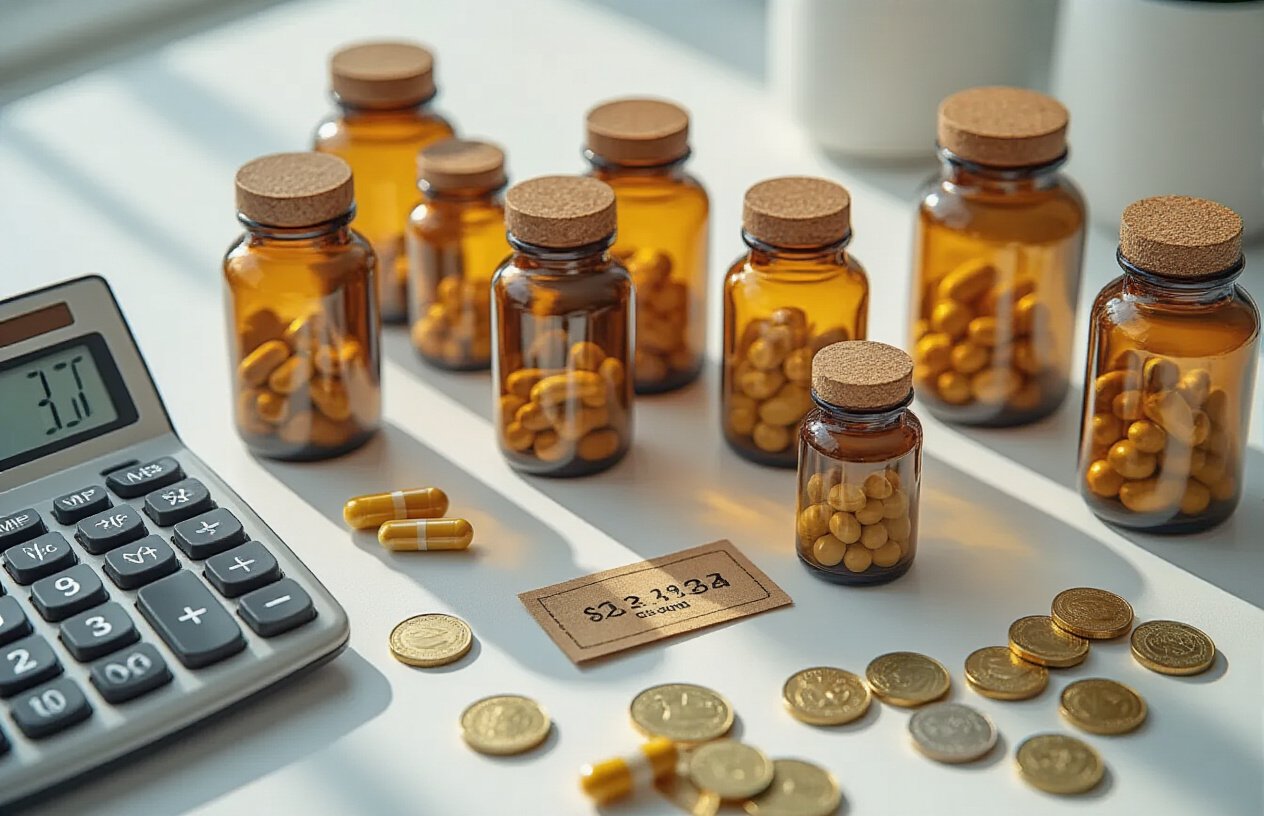
Breaking down price per serving calculations
When you’re shopping for berberine supplements, the sticker price can be misleading. A $15 bottle might seem cheaper than a $25 option, but the real value lies in how much you’re paying per dose. To calculate the cost per serving, divide the total price by the number of capsules or tablets, then factor in the recommended daily serving size.
Most berberine supplements require 2-3 capsules daily for optimal results. If a 90-capsule bottle costs $18 and you take 3 capsules per day, you’re getting 30 days of supply at $0.60 per day. Compare this to a 60-capsule bottle at $12 where you take 2 capsules daily – that’s also 30 days but costs $0.40 per day, making it the better deal despite the lower upfront cost.
Some brands package their products with different capsule counts specifically to make price comparison challenging. Always check the “days supply” listed on the label, or do the math yourself to avoid getting fooled by clever packaging.
Dosage strength variations affecting value
Berberine supplements range from 400mg to 1200mg per capsule, and this dramatically impacts their actual value. A 400mg capsule might cost $0.15, while a 1000mg capsule costs $0.30. At first glance, the weaker dose seems cheaper, but you’d need to take 2.5 of the 400mg capsules to match the potency of one 1000mg capsule, making your daily cost $0.375 versus $0.30.
Higher-strength capsules typically offer better value per milligram of berberine. However, some people prefer starting with lower doses to assess tolerance, especially since berberine can cause digestive upset in some users. If you’re sensitive to supplements, paying slightly more for lower-strength capsules that you can actually tolerate might be worth the extra cost.
Watch out for brands that use proprietary blends or add fillers that reduce the actual berberine content. Pure berberine HCl supplements generally provide better value than complex formulations with multiple ingredients.
Monthly supply costs for different brands
Based on current market analysis, monthly berberine costs vary significantly across popular brands:
| Brand | Bottle Size | Price | Strength | Daily Dose | Monthly Cost |
|---|---|---|---|---|---|
| NOW Foods | 90 capsules | $16 | 400mg | 3 capsules | $16.00 |
| Thorne | 60 capsules | $28 | 500mg | 2 capsules | $28.00 |
| Nature’s Way | 90 capsules | $14 | 500mg | 2 capsules | $9.33 |
| Jarrow Formulas | 120 capsules | $22 | 500mg | 2 capsules | $11.00 |
| Double Wood | 120 capsules | $20 | 500mg | 2 capsules | $10.00 |
Budget-conscious buyers often find the sweet spot with mid-tier brands like Nature’s Way and Double Wood, which offer quality berberine at reasonable monthly costs. Premium brands like Thorne charge significantly more but may offer superior manufacturing standards and third-party testing.
Generic store brands from retailers like Costco or Amazon’s basic line can bring monthly costs down to $8-12, though you’ll want to verify the quality and purity through customer reviews and available lab testing results.
Buying in bulk during sales can reduce these monthly costs by 20-30%, making even premium brands more affordable for long-term users.
Warning Signs of Suspiciously Cheap Berberine Supplements
Quality red flags in ultra-low priced products
When berberine supplements cost significantly less than the market average, several warning signs should make you pause before purchasing. Products priced under $10 for a month’s supply often cut corners in ways that affect both safety and effectiveness.
Poor packaging quality serves as the first indicator. Legitimate manufacturers invest in proper bottles, tamper-evident seals, and clear labeling. Suspiciously cheap products frequently arrive in flimsy containers with peeling labels, missing lot numbers, or unclear expiration dates. The capsules themselves may appear inconsistent in color, size, or texture.
Vague ingredient lists represent another major red flag. Quality berberine supplements clearly state the exact amount of berberine HCl per capsule, typically 500mg. Cheap alternatives might list “berberine complex” or “proprietary blend” without specifying actual berberine content. Some products dilute berberine with fillers like rice flour or magnesium stearate while maintaining deceptively low prices.
Manufacturing location becomes crucial when evaluating budget options. Products manufactured in facilities without FDA oversight or GMP (Good Manufacturing Practices) certification pose contamination risks. Check for statements about manufacturing standards on the label or company website.
Unrealistic claims also signal problematic products. Legitimate berberine supplements make modest, research-backed claims about blood sugar support. Products promising “miracle weight loss” or “instant diabetes cure” at rock-bottom prices exploit consumer desperation while delivering substandard formulations.
Third-party testing importance for budget options
Budget berberine supplements rarely undergo independent testing, making third-party verification essential for safety-conscious consumers. Without these certifications, you’re essentially gambling with your health and money.
Reputable testing organizations like USP (United States Pharmacopeia), NSF International, or ConsumerLab verify that supplements contain what their labels claim. These tests check for accurate ingredient amounts, contamination with heavy metals, and absence of harmful microorganisms. Budget brands often skip this expensive step to maintain low prices.
Heavy metal contamination poses particular risks in cheap berberine products. Lead, mercury, cadmium, and arsenic can accumulate in poorly sourced or processed supplements. Third-party testing catches these dangerous contaminants before products reach consumers.
Potency verification ensures you’re getting adequate berberine amounts. Some budget products contain as little as 100mg of actual berberine despite claiming 500mg on the label. Testing confirms whether the supplement delivers therapeutic doses.
Look for certificates of analysis (COAs) on manufacturer websites. These documents provide detailed test results for specific product batches. Companies hiding behind vague quality claims without publishing actual test data should raise immediate suspicions.
When third-party testing isn’t available, consider splitting the difference by choosing moderately priced products from established brands with good reputations rather than the absolute cheapest options available.
Avoiding counterfeit supplements in discount markets
Counterfeit berberine supplements flood discount markets, particularly online marketplaces and unauthorized retailers. These fake products pose serious health risks while wasting your money on ineffective formulations.
Unauthorized sellers on platforms like eBay, Amazon (third-party sellers), or social media marketplaces frequently sell counterfeit supplements. These products may contain no berberine at all, dangerous substitutes, or contaminated ingredients. Stick to authorized retailers, manufacturer websites, or established supplement stores with proper licensing.
Packaging inconsistencies often expose counterfeit products. Compare suspected fakes with authentic products from manufacturer websites. Look for differences in fonts, colors, holographic seals, or bottle designs. Counterfeiters rarely replicate packaging perfectly.
Unrealistic discounts signal potential counterfeits. If a normally $30 berberine supplement sells for $8, question its authenticity. While legitimate sales occur, dramatic price drops often indicate fake products or expired inventory being offloaded.
Batch codes and lot numbers provide authenticity verification. Legitimate manufacturers include these identifiers on every bottle, allowing consumers to trace products back to specific production runs. Contact manufacturers directly to verify suspicious batch codes.
Purchase timing affects counterfeit risk. Buying during major sales events when legitimate retailers offer genuine discounts reduces the temptation to choose suspiciously cheap alternatives from unknown sources.
Review seller feedback and return policies carefully. Legitimate sellers maintain high ratings and offer reasonable return policies. Counterfeit sellers often have poor reviews mentioning ineffective products, shipping delays, or customer service problems.
Finding affordable berberine doesn’t have to drain your wallet if you know where to look and what to watch for. The key is understanding that different supplement types come with different price tags, and budget-friendly brands under $20 can offer the same quality as pricier alternatives. Shopping at discount retailers, buying in bulk, and timing your purchases around sales can slash your berberine costs significantly.
Remember to calculate the cost per dose rather than just looking at the bottle price – this gives you the real picture of what you’re paying. While saving money is great, stay alert for red flags like unusually low prices that might signal poor quality or fake products. Your health is worth investing in properly, so find that sweet spot between affordability and quality to keep your berberine routine both effective and budget-friendly.


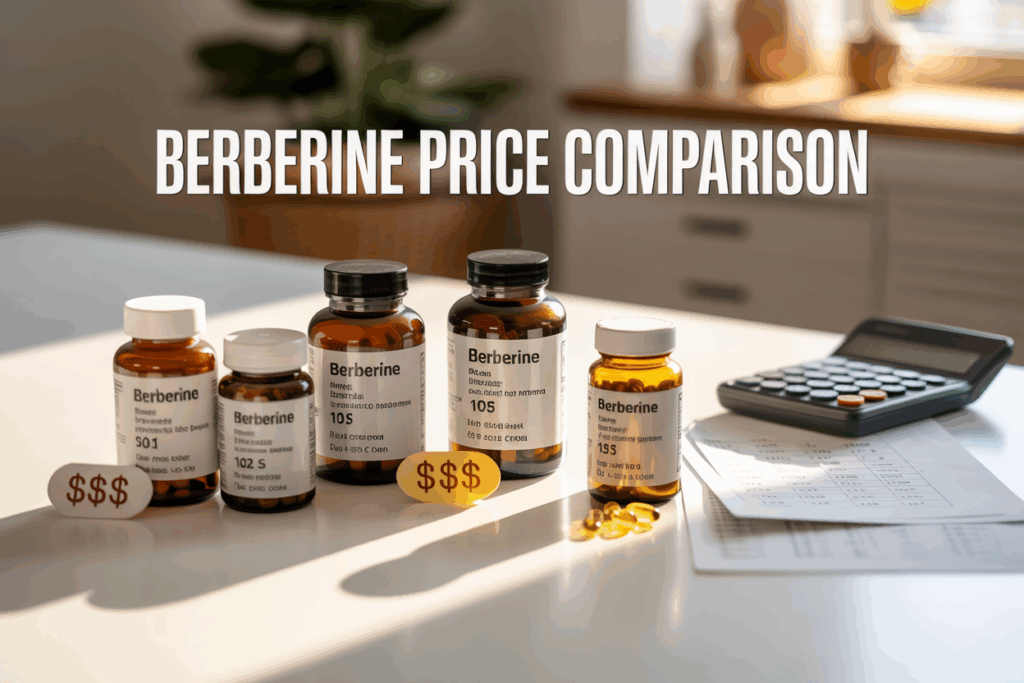
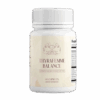 Thyrafemme Balance
$ 79,00
Thyrafemme Balance
$ 79,00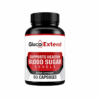 Gluco Extend
$ 79,00
Gluco Extend
$ 79,00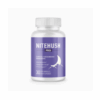 Niterush Pro
$ 69,00
Niterush Pro
$ 69,00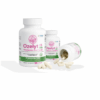 Ozelyt CS 20b
$ 59,00
Ozelyt CS 20b
$ 59,00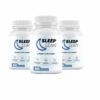 SleepLean
$ 79,00
SleepLean
$ 79,00 Neuro Balance
$ 37,00
Neuro Balance
$ 37,00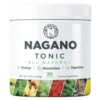 Nagano Tonic
$ 79,00
Nagano Tonic
$ 79,00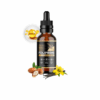 FoliPrime
$ 69,00
FoliPrime
$ 69,00